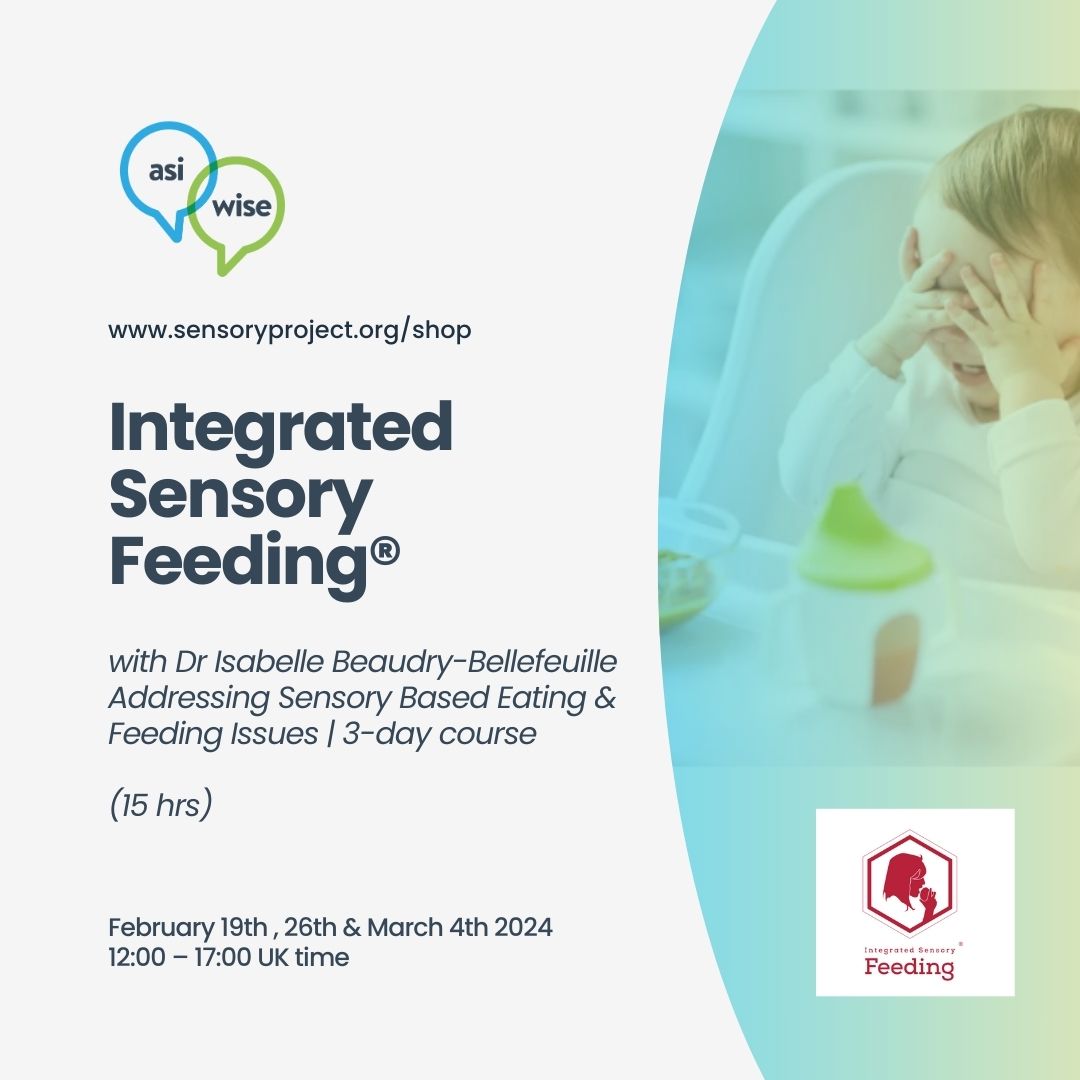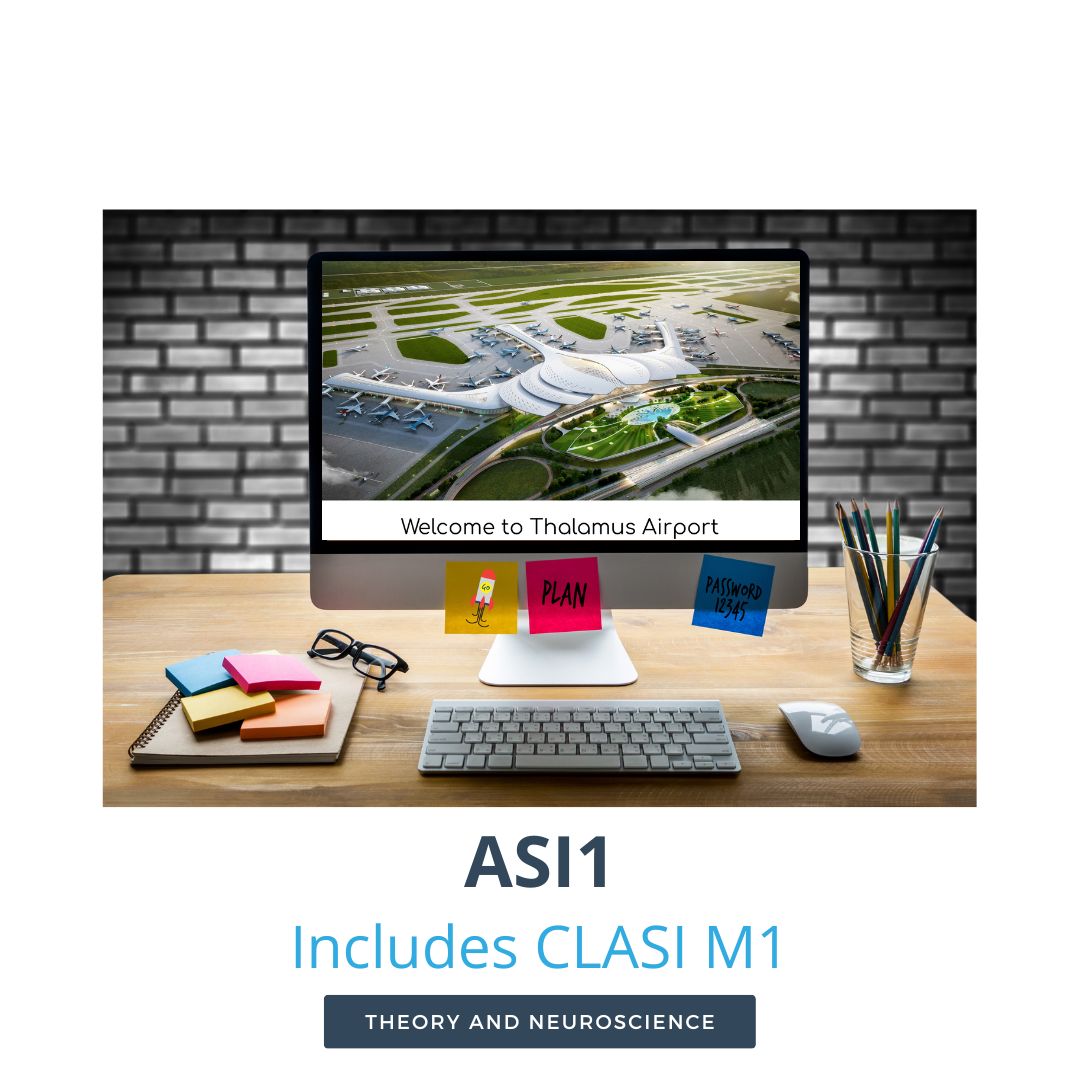Workshop | Integrated Sensory Feeding® (ISF®)
Original price was: £199.00.£179.00Current price is: £179.00.
Learning Outcomes
● Identify the factors associated with feeding difficulties.
● Learn to carry out a basic evaluation and treatment.
● Understand the multidisciplinary approach in the treatment of feeding difficulties.
Click here for more info:
24 in stock (can be backordered)
Feb 19th & 26th, March 4th 2024 | 12:00 – 17:00
Integrated Sensory Feeding® (ISF®) is an evidence-based comprehensive approach to assessment
and intervention for children who have food selectivity and refusal. ISF® was developed by Dr.
Isabelle Beaudry-Bellefeuille, PhD, OT(C) and ISF® is anchored in occupational therapy, Ayres
Sensory Integration® and multidisciplinary collaboration with relevant health professionals.
Overview
This course is about clinical reasoning concerning children who are very selective in their food
choices, or refuse to eat without apparent cause. A proposed methodology of evaluation and
treatment planning are presented. During the course, we review the different causes of food refusal,
food selectivity, and mealtime participation difficulties to ensure a proper understanding of the
feeding problem. Differential diagnosis is very important, as it is the first step in choosing the correct
treatment. We therefore spend a lot of time tweaking out psychological, sensory, motor and medical
issues that may all coexist, be confounded and lead to feeding problems. A multidisciplinary
approach is presented through discussion of case studies.
This course is about understanding the underlying issues so that one can choose the treatment
approach which most suits the child and refer to the professional who can best meet the needs of
the child. There is not a single therapeutic approach or professional domain which can effectively
respond to all feeding refusal issues. Many children need a broad view of their difficulties with food
acceptance and mealtime participation. The key is identifying the underlying problem or problems in
order to create an individualised, often multidisciplinary, treatment plan.
This course covers children from 6 months to toddlers; neurotypical children, children with ASD and
children with subtle developmental issues. It does not focus on adults or children with cerebral
palsy.
This course is open to Occupational Therapists, Speech-Language Therapists, Paediatricians and
Dietitians.
Objectives
Learning Outcomes
- Identify the factors associated with feeding difficulties.
- Learn to carry out a basic evaluation and treatment.
- Understand the multidisciplinary approach in the treatment of feeding difficulties.
Introduction
Brief review of oro-facial anatomy.
- Motor and sensory processes involved in feeding.
- Phases of swallowing.
Brief review of normal development of feeding skills.
- The new born: reflexes, anatomical considerations, development of sucking.
- From 4 to 6 months: reflexes, anatomical considerations, introduction of spoon feeding.
- From 5 to 8 months: reflexes, anatomical considerations, first steps towards chewing.
- From 12 months on: the development of chewing.
Food texture workshop
- Sensori-motor properties of food.
- Sensori-motor skill requirements for different foods.
Evaluation process (part 1).
- Parent interview.
- Clinical evaluation
- Treatment planning.
Establishing priorities.
- Methodology for the analysis of problem areas.
- Review of treatment techniques.
Clinical cases presented by the instructor.
Participants can bring videos of their cases for discussion as well.

